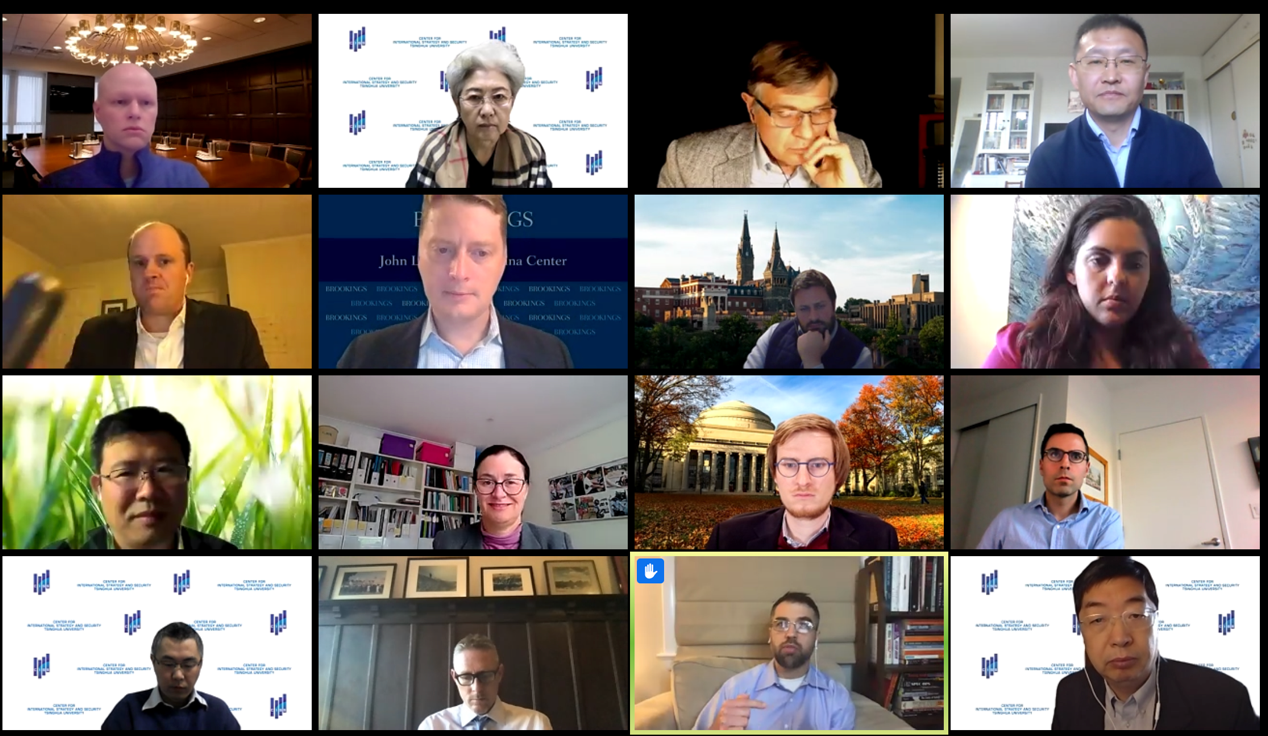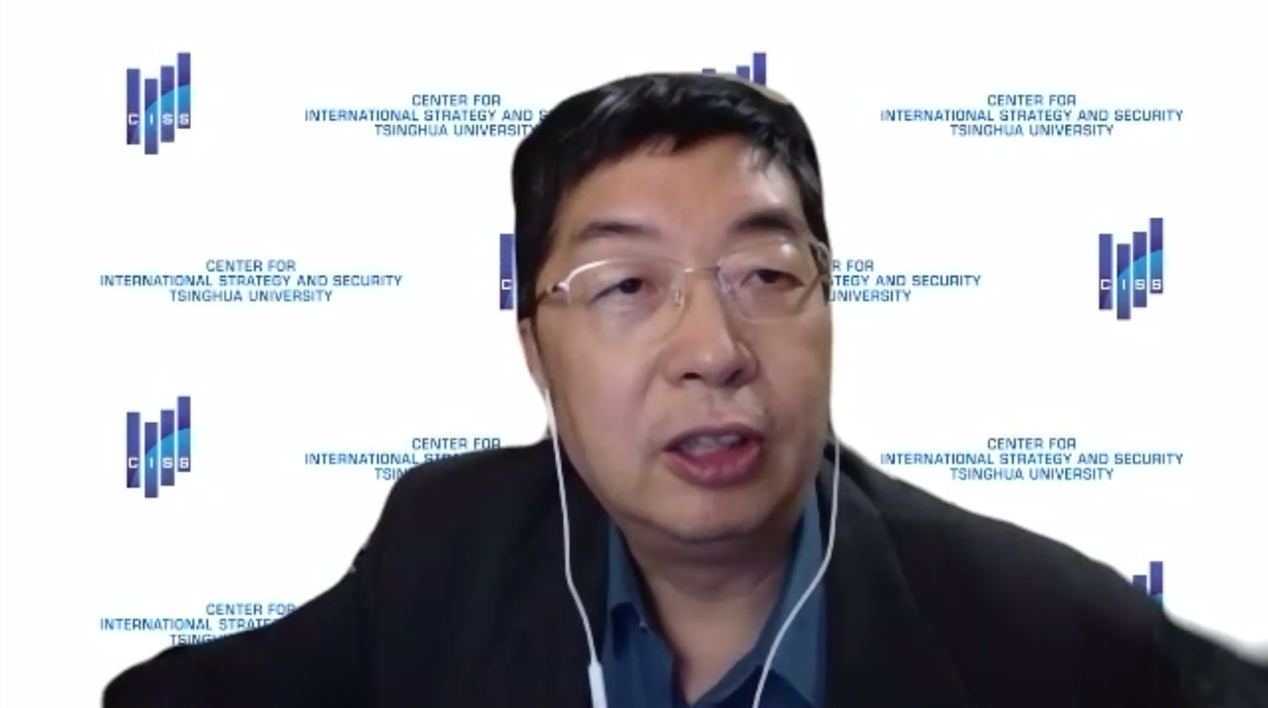From October 26 to 27, 2020 Beijing Time, the third session of the China-U.S. AI Security Dialogue was held online by the Center for International Security and Strategy (CISS), Tsinghua University and the Brookings Institution. Mme. Fu Ying, Chair of CISS, and John Allen, President of the Brookings Institution addressed the meeting, followed by robust discussions between the project’s Chinese and U.S. teams.

Prior to this meeting, the Chinese and American members had probed into a set of issues in groups on the grounds of previous dialogues, and exchanged their research findings in the second phase, which were further elaborated and discussed at the meeting, including the delimitation of restricted zones of AI-empowered weapons, proportionality and human supervision in the use of AI-empowered weapons, data restrictions for AI training, as well as the establishment of AI norms and risk control.

| Speech by Mme. Fu Ying, Chairperson of CISS

| Speech by John Allen, President of the Brookings Institution
It was generally agreed during the discussion that China and the U.S. ought to further their exchanges and seek consensus on these issues, and work together to establish an AI-related crisis management mechanism, which is imperative for international security. Furthermore, members concurred with each other that the development and application of AI-empowered weapons should comply with international laws, and that there should always be human supervision throughout the process of autonomous decision-making by AI.
In addition, there was a broad agreement on the need for closer China-U.S. cooperation to push for the establishment of AI-related international rules to reduce the potential risks of AI to international security, such as AI misjudgments caused by data deviations, illegal proliferation of AI technologies, and the abuse of AI-empowered weapons. The two sides also exchanged views on specific issues such as data sources for AI training and target control. In that connection, it was widely felt among the participants that restrictions are necessary to avoid the detrimental effects of AI failures.

| Speech by Li Bin, the Chinese Team Lead and Professor of Tsinghua University
The event drew to a close with a more in-depth discussion on how China and the U.S., in the current context, could build broader understanding and trust with each other in the field of AI and international security, followed by a general desire from both sides to pursue further dialogue and cooperation.
Since its inception in 2019, the China-U.S. AI Security Dialogue of CISS has kept its primary focus on the impact of AI development on international security. Research and dialogues on relevant issues between Chinese and U.S. expert groups are organized by CISS and the Brookings Institution respectively. The first session of the China-U.S. AI Security Dialogue was held in Beijing on October 23, 2019, and the second in Munich on February 14, 2020 during the Munich Security Conference.
